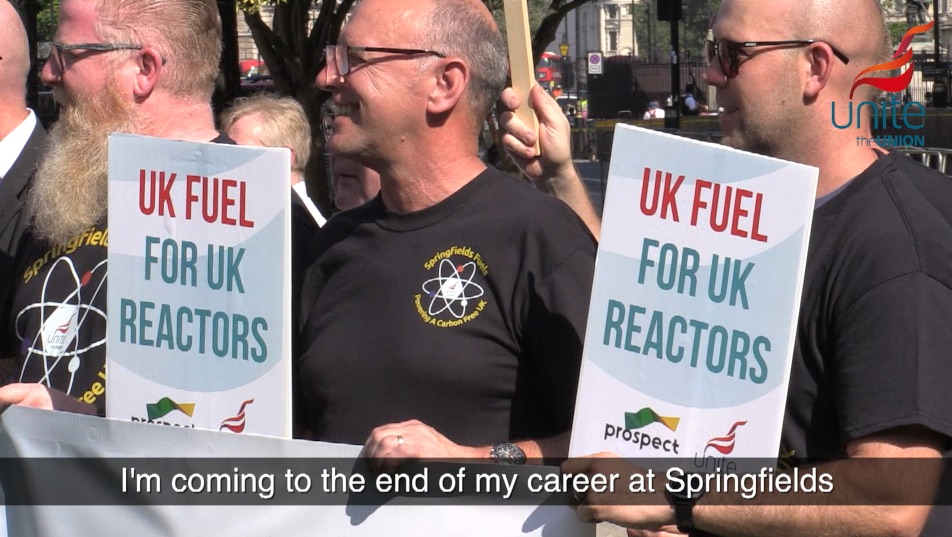Tory’s green flag in tatters
Less than a decade ago, current prime minister David Cameron set off to visit a remote Norwegian glacier to witness first-hand the effects of global warming. On a sled to visit the site, he famously posed for a picture hugging a huskie.
The visit was seen as proof that the Conservative party took seriously the threat of climate change and the need to do something about it. Cameron urged voters at the time, “Vote blue to go green.”
Nine years later, the Tory’s green energy policy is in tatters, most recently evidenced by the news today (September 25) that power giant Drax would no longer be investing in a technology that reduces carbon emissions generated by coal to virtually zero.
Drax announced that it would be pulling out of the White Rose carbon capture and storage (CCS) project at its coal-fired power station in North Yorkshire, just months after the government’s decision to no longer exempt renewable energy companies from a climate change tax.
Although Drax’s partners in the consortium running the White Rose project, Alstom and the BOC industrial gas group, have said that they’ve committed to completing the CCS scheme, Unite national officer Kevin Coyne was doubtful.
“The future of the project is definitely now more uncertain,” he said. “Large projects such as White Rose need significant investment and government support.”
Disaster
Coyne called the withdrawal of Drax, whose complex in North Yorkshire is the biggest energy producer in the UK and in Western Europe, “a disaster”.
“The technology is proven and already in use in Canada and Sweden,” he said. “It could have been a blueprint for similar projects elsewhere in the UK.”
Coyne explained that the Boundary Dam Power Station in Canada, the first commercial-scale coal-fired power station fitted with CCS technology, which opened last year, has already been a stunning success, one which would not have been possible if it weren’t for strong government support.
Unite has called on the government to “step up to the plate” with public investment if the White Rose project is to successfully come to fruition.
“The underlying message here is that the private sector has been unable to provide the necessary investment to support the carbon capture initiative – this should be a salutary lesson,” Coyne said.
“Private sector money is not necessarily the panacea for big nationally important schemes.”
This notion was highlighted today by Drax itself, which said it had to put shareholders first.
Peter Emery, a Drax board member chairing the group that is running the White Rose CCS project told the Financial Times that the government’s “critical reversals” on support for renewable energy had “a severe impact on profitability”.
“The decision is based purely on a drastically different financial and regulatory environment and we must put the interests of the business and our shareholders first,” Emery noted in an official Drax statement.
Coyne said that the government’s decision to reduce subsidies for renewable energy had contributed to not creating a “climate of confidence for private sector investment”.
Energy and climate change secretary Amber Rudd defended cuts to renewable subsidies earlier this month, saying that the government needed to keep “bills as low as possible for hardworking families and businesses across the country.”
Coyne criticised this line or reasoning.
“This is the same thing that they said about energy privatisation – that it would keep costs for consumers low,” he said. “But as we all know the exact opposite has happened.”
Although critics of Carbon Capture and Storage say that the technology is far too expensive, Coyne noted that CCS is an important part of a wider, diversified clean energy strategy.
“All low carbon technology is expensive,” he said. “Companies rely on subsidies because, simply put, energy is extremely expensive. And the cuts to subsidies will mean serious loss of production in other renewables such as wind energy.”
Coyne warned that if the government did not change course with its green energy policy, “it was quite clear” that the country’s energy capacity would be under serious threat.
“Coal-fired power stations will be phased out by 2021 – six such closures have been announced so far this year,” he said. “The energy supply prospects for the UK look bleak.”
“Amber Rudd needs to get a grip, as five months into the job as energy secretary the strategy to keep the lights on in the decades ahead appears to be rudderless,” Coyne added.
Government cuts to renewables subsidies were also condemned by former U.S. Vice President Al Gore, who has been credited with making climate change an issue topping the global political agenda.
“The UK’s historic legacy of leadership on the most important moral issues faced by humanity, including the climate crisis, is long and has been recognised with respect by the community of nations,” Gore noted.
“It is time for the UK government to honour and live up to that legacy, and return to its global leadership position, domestically and abroad,” he said.
Following changes in the Tory government’s green energy policies, for the first time ever, the UK fell out of the top ten in a respected international league table on renewable energy, dropping below countries such as Brazil and Chile.
 Like
Like Follow
Follow


